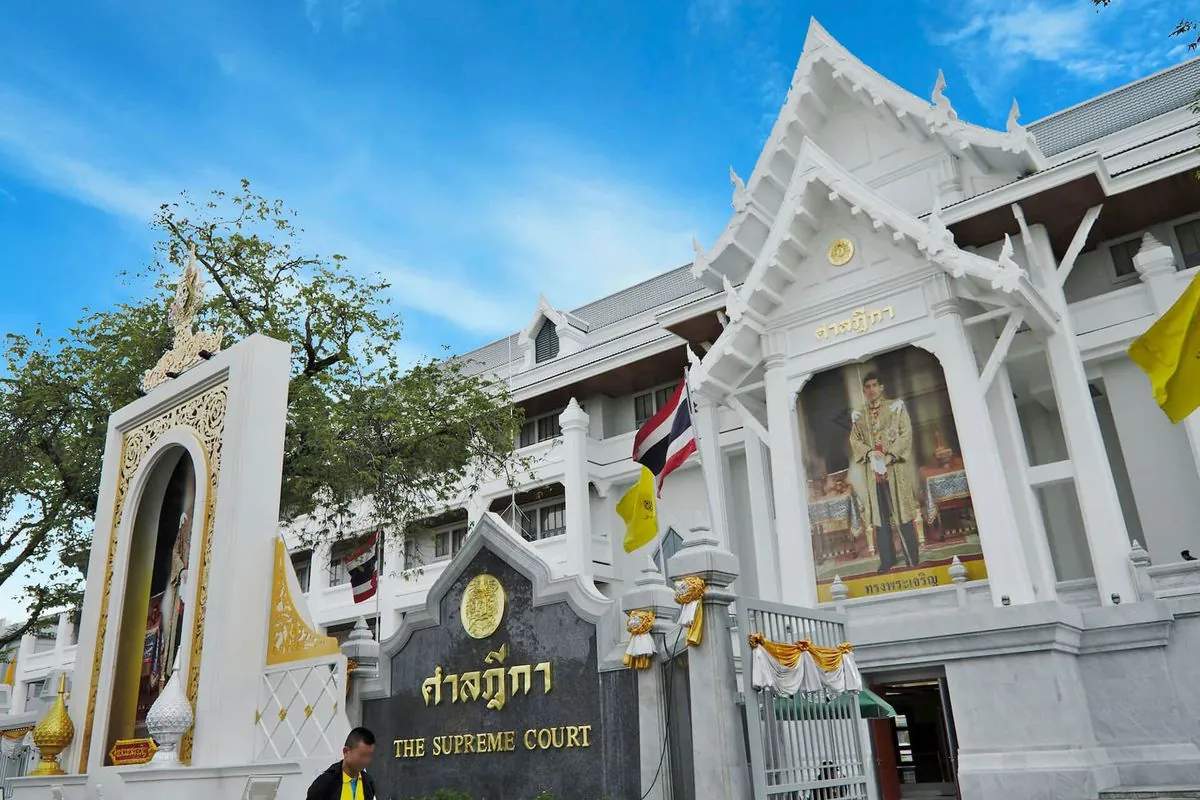Thai Court Dissolves Opposition Party Over Royal Law Reform Bid
Thailand's Constitutional Court orders the dissolution of the Move Forward party for its campaign to amend a royal insults law. The ruling follows a January decision deeming the campaign unconstitutional.

On August 7, 2024, Thailand's Constitutional Court issued a ruling that has sent shockwaves through the nation's political landscape. The court ordered the dissolution of the Move Forward party, a popular opposition group, citing its campaign to amend the country's royal insults law as the primary reason for this drastic measure.
This decision comes seven months after the same court declared Move Forward's campaign unconstitutional in January 2024. The court viewed the party's efforts to modify the lèse-majesté law, which protects the monarchy from criticism, as a threat to Thailand's governance system, where the king serves as the head of state.

Thailand's lèse-majesté law, also known as Article 112, is one of the strictest of its kind globally, carrying penalties of up to 15 years in imprisonment for those found guilty of insulting the monarchy. Human rights organizations have long criticized this law for its potential to stifle free speech and political dissent.
The Move Forward party, founded in 2020, emerged as a successor to the dissolved Future Forward Party. It quickly gained popularity, particularly among younger voters, for its progressive stance and advocacy for reducing the military's role in politics. In a surprising turn of events, Move Forward secured the most seats in the 2023 general election but was ultimately blocked from forming a government.
"The party's actions were deemed to undermine the constitutional monarchy system, which is integral to Thailand's governance."
Thailand's political history has been marked by frequent changes and instability since the 1930s, with the country experiencing multiple military coups. The most recent coup occurred in 2014, leading to the drafting of the 2017 constitution under military rule.
The dissolution of Move Forward is not an isolated incident in Thai politics. The Constitutional Court has previously disbanded several political parties, including Move Forward's predecessor, Future Forward, in 2020 over alleged campaign finance violations.
This latest development raises questions about the future of political opposition in Thailand and the balance between monarchy protection and democratic freedoms. As the country grapples with these issues, it also faces economic challenges, with its economy heavily reliant on tourism and exports.
The ruling serves as a reminder of the complex interplay between Thailand's traditional institutions and its evolving political landscape, highlighting the ongoing struggle to find a balance that satisfies all segments of Thai society.


































